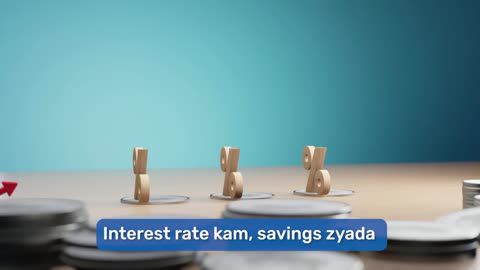Understanding Section 54B of the Income Tax Act
Section 54B of the Income Tax Act provides exemptions on capital gains from the sale of agricultural land. To qualify, the land sold must have been used for agricultural purposes for at least two years. Taxpayers can reinvest the sale proceeds into another agricultural land to defer tax liabilities. The entire gain is exempt if the entire proceeds are reinvested, otherwise, the exemption is proportionately reduced. Investments must be made within two years from the sale date. Understanding these provisions is crucial for taxpayers aiming to leverage the benefits effectively.
Who can claim the Section 54B deduction?
Only individuals or Hindu Undivided Families (HUFs) who have earned capital gains from the sale of agricultural land are eligible to claim deductions under Section 54B of the Income Tax Act.
Who is eligible to claim exemption under Section 54B of the Income Tax Act?
Taxpayers who satisfy the following conditions are eligible to claim exemptions under Section 54B:
The land sold must be agricultural land used by the taxpayer or their parents for agricultural purposes for a minimum period of two years preceding the date of sale.
- The taxpayer must utilise the sale proceeds to purchase another agricultural land within the stipulated time frame.
What is Section 54B under the Income Tax Act?
Section 54B of the Income Tax Act of India provides for a capital gains exemption if the sale proceeds of agricultural land are used to purchase another agricultural land.
- This exemption is available to individuals or Hindu Undivided Families (HUFs)
- The asset that is being transferred should be agricultural land, which has been used for agricultural purposes by the individual, his parents, or a HUF in the two years immediately before the date of transfer.
- The new land should be purchased within a period of two years after the date of sale.
- If the new land purchased is sold within a period of three years from the date of its purchase, the capital gains exemption allowed earlier will be revoked.
- If the cost of the new land is less than the sold agricultural land's capital gain, then the difference is taxable.
What happens to exemptions when agricultural land is sold?
When agricultural land is sold, any capital gains arising from the sale become taxable under the provisions of the Income Tax Act. These capital gains are typically calculated as the difference between the sale proceeds and the cost of acquisition of the agricultural land, adjusted for any expenses incurred during the sale process.
However, taxpayers can avail themselves of exemptions from capital gains tax under Section 54B of the Income Tax Act. This provision allows individuals or Hindu Undivided Families (HUFs) who have earned capital gains from the sale of agricultural land to defer their tax liabilities by reinvesting the proceeds from the sale into the purchase of another agricultural land.
By reinvesting the sale proceeds into another agricultural land within the stipulated time frame, taxpayers can effectively roll over their gains into a new asset, thereby deferring the tax liability. This provision aims to encourage investment in agricultural activities and support individuals engaged in agricultural pursuits by providing them with tax relief on the sale of agricultural land.
It is important to note that to claim the exemption under Section 54B, the new agricultural land must be purchased within a specified period, usually within two years from the date of sale of the original agricultural land. Additionally, the land sold and the land purchased must both qualify as agricultural land as per the definition provided under the Income Tax Act.
Other topics you might find interesting |
|||
What is the timeframe for utilising the exemption under Section 54B?
Under Section 54B of the Income Tax Act, taxpayers must reinvest the sale proceeds from the agricultural land into the purchase of another agricultural land within a specified timeframe to avail of the exemption on capital gains.
Taxpayers are required to reinvest the sale proceeds from the agricultural land into the purchase of another agricultural land within two years from the date of sale of the original agricultural land. Alternatively, they can also invest in a new agricultural land within one year before the date of sale of the original agricultural land
In summary, taxpayers must reinvest the sale proceeds into another agricultural land within the prescribed period to avail of the exemptions provided under Section 54B of the Income Tax Act. Failure to meet this timeframe may result in the loss of the tax benefits associated with the exemption. Therefore, it is crucial for taxpayers to adhere to the specified timeframe and utilize tools like income tax calculators while planning their reinvestment strategies to effectively utilise the benefits under Section 54B.
Popular calculators for your financial calculations
|




